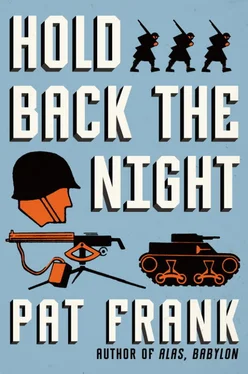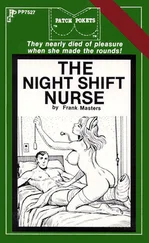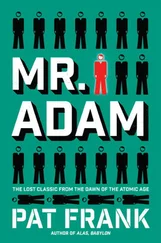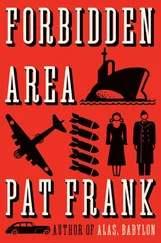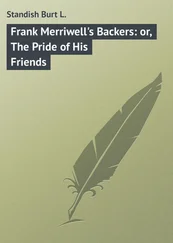So Second Lieutenant Telfair caught himself some more altitude and headed up the road again, in the general direction of Koto-Ri. He soon saw he couldn’t go far, because a few miles ahead the clouds butted into the peaks. And as he approached this point he saw tiny red sparks flickering. He swiveled the helicopter, and allowed it to dip for a closer look, and he saw that the people who were shooting at him were mounted on horseback. “What kind of a war is this?” he asked himself aloud. “What kind of a war is this when cavalry can scare away a helicopter? By rights they shouldn’t have any cavalry, anyway.”
Now Second Lieutenant Telfair, unknown to anyone aboard the Leyte, and against orders, carried with him several hand grenades whenever he went on a mission with his pinwheel. He had never found a desirable target for what he thought of as his bombs, but this was it, if he was ever going to find it. He waggled the pinwheel wildly to distract the horsemen’s aim, and then went into what he considered a dive, meanwhile fighting to pry open, against the blast of wind, a section of his plexiglass cocoon.
When the opening was large enough, he pulled the pin of the grenade and dropped it towards earth, and banked the pinwheel to see what would happen. He saw that his bomb wasn’t going to kill anyone, because the horsemen were racing off. They were no longer shooting at anybody. They were just running. “I wonder whether this pinwheel scared those horses?” he said, disappointed. When he was flying he always talked aloud to himself like that. Sometimes this made him think he was crazy, and once he had told a Navy doctor about it, and the doctor had just laughed at him. “Doesn’t a pinwheel make a big racket?” the doctor had asked.
“Sure,” Lieutenant Telfair had said. “You can’t even hear yourself think.”
“Well, that’s why you talk aloud, so you can hear yourself think,” the doctor had said, and the doctor had laughed until he cried. This, Lieutenant Telfair did not understand, but he knew that he thought better, on a mission, when he talked to himself. “I guess I’d better go back,” he told himself.
So he stopped his pinwheel in midair, backed it around, and started towards the coast again, but he decided that on the way back he would take another, and closer, look at the burned-out tank, because nobody had bothered to shoot at him the first time. He swept along the road, low. He moved fast, too. His air speed was one hundred. A helicopter is deceptively clumsy, like a pelican. A helicopter is not really so slow. A helicopter flies faster than a duck, and enemy riflemen forget to lead them, for they are so fat and ungainly, and that is why so many second lieutenants like Slaton Telfair are still alive.
When he came in low over the tank he was pretty sure that it was a Chinese tank. It looked just like the turret of a T-34. “If that is a Chinese tank,” he said, “then there must be Americans around. Maybe all those dead are Americans. Maybe they fought the tank and they killed the tank and the tank killed them.”
He stopped the helicopter again, and allowed it to settle towards the ground, directly over the tank and the dead. He hovered twelve feet over the dead. The dead were Chinese, all of them. “Well, I’ll be damned,” said Lieutenant Telfair. “There ought to be Americans somewhere. Where are they?”
He began to look.
On the ground, Dog Company had seen the helicopter approach, of course, and they had screamed and yelled, and waved their arms. The helicopter had sailed over them, serenely, and on up the road towards their bivouac of the night, and the hill where they had seen the Mongol horsemen.
They cursed him. They cursed him, and the Air Force, and the Navy, and the high command. “Know what he’s doing?” said Petrucci. “He’s out looking for the Chinks. He doesn’t give a damn about us.”
“Why they don’t even know we’re here,” said Heinzerling.
“Know what would happen if that screwball pinwheel saw us?” said Heinzerling. “He’d call down fire on us, that’s what he’d do. He’d have the Mo laying sixteen inchers in our laps.”
“That’s all we need,” said Petrucci.
Far back the road they heard the rattle of rifles, and then an explosion that could have been a mortar, or a grenade. “Hope they got him,” said Heinzerling.
“They won’t,” said Petrucci. “Them pinwheel pilots are shot with luck. They live forever.”
Apparently Petrucci was right, for presently they heard the pinwheel again. They looked back and they saw it stop over the tank, and then it started moving again, down the road towards them.
Ekland knew he had to do something, and he had to do it fast. He had no flares, or even any tracer ammunition any longer, or anything at all to attract the attention of that pinwheel. The pinwheel might just happen to see them on the road, but this was unlikely, because of the overhang of the cliff, and the condition of the road, icy mud churned and filthy and frozen, exactly like their clothing. They were almost perfectly camouflaged. They might be seen in clean snow, and he looked off the road, and he saw clean snow. “Follow me!” Ekland yelled, and he ran out into the snow-covered flat, where his filthy parka would be marked against the clean white, and the others followed him, and they waved.
When the pinwheel was almost overhead it slowed down, and then stopped, and then began a weird revolving motion. It was as if the pinwheel said, “Who are you? Who are you down there? Friend or foe? Make some sign.”
“He wants us to make a sign,” said Ekland, and then he thought of what to do. “We make an SOS. We make an SOS in the snow.”
“With what?” asked Beany Smith.
“With ourselves,” said Ekland. He detailed them. “You, you, and you, you’re an S. You three, you’re the O. You three here, you’re the other S.”
Nine men lay down in the snow, as Ekland arranged them, and the pinwheel came down beside them, and a face in the pinwheel grinned, and a hand in the pinwheel jabbed down at the loaded basket litters.
They unloaded the supplies, and loaded Tinker into one of the basket litters, and they were about to lift Mackenzie when Mackenzie waved his hand and shook his head and said something, but they could not hear him, because of the noise of the pinwheel’s engine. Mackenzie pointed to his musette bag, and then he pointed to Ekland, and they all knew what the captain meant. And then Mackenzie touched the pocket of his parka, and Ekland leaned over him and took out the bottle of Scotch.
They strapped the captain into the basket litter, gently. The pinwheel rose straight up, and was soon gone. Twenty-five minutes later it descended on the deck of the Leyte, and the trained crash crews, seeing its basket litters were loaded, ducked under the rotor.
Second Lieutenant Telfair went below for coffee. Adjoining the ready room, the Leyte maintained a snack bar, and soda fountain, for the men of its air group. The commander, Air Group, saw Telfair drinking his coffee there, and he said, “Well, what’d you get?”
“Two wounded,” Telfair said.
“Three more and we’ll make you an ace,” said the commander, and everybody laughed.
DOG COMPANY NOW had more of everything than it needed. It had more than it could comfortably carry, but Ekland insisted they carry it all. He insisted they bring the litters with them, and he insisted they load the litters with the extra magazines of ammunition, and extra cartons of food. He allowed them to eat all the combat rations they wanted, or all they could chip from the cartons with their bayonets, but then Ekland got tough.
He ordered them on, immediately. They no longer had fuel, so it was necessary they keep moving.
Читать дальше
